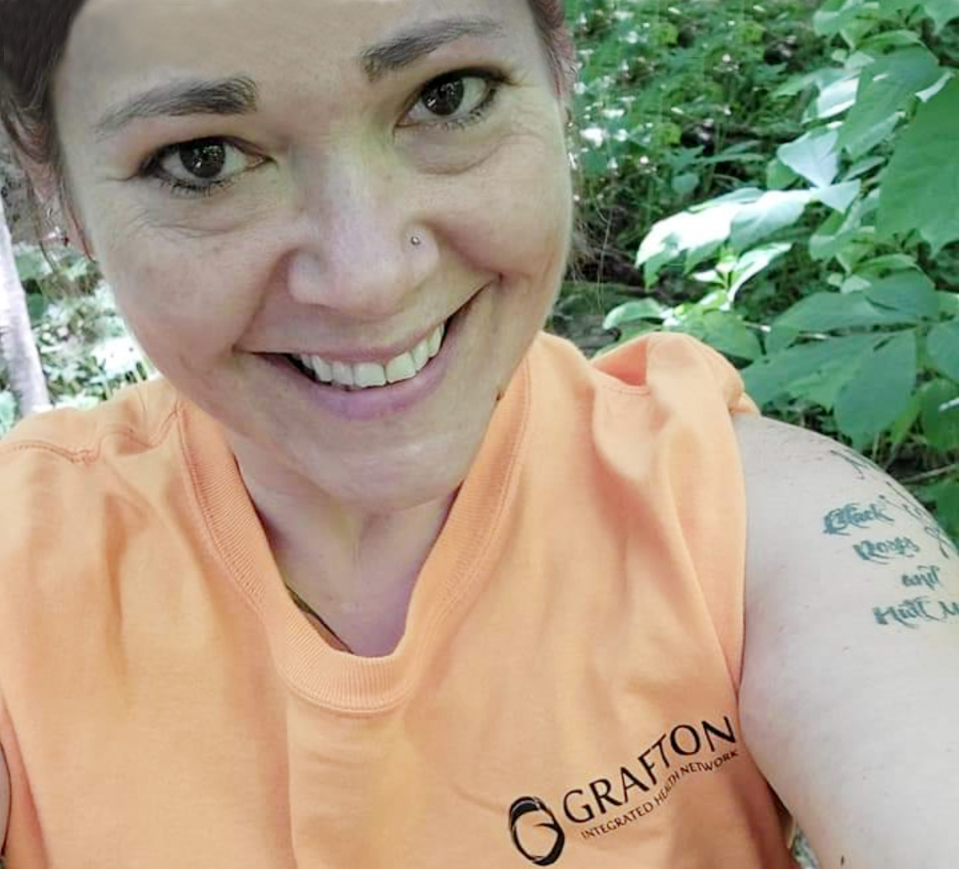
Employee Spotlight: Virginia Simmons, Special Education Teacher
Virginia Simmons joined Grafton as an Instructional Assistant in 2018. Today, she’s a Middle School Special Education teacher with her own classroom in Berryville.
Have you always wanted to be a teacher?
Not always. I earned my bachelor’s degree in Human Services. When I saw an ad that Grafton was looking for an Instructional Assistant, I decided to try it out. The teacher in my classroom ended up moving to another position, so I started substituting. Now, I can’t think of anything in the world that I would rather do than teach exceptional children.
How did you move from being an Instructional Assistant to having your own middle school classroom?
When I started substituting, it just clicked for me. I clicked with the kids. The next thing you know, my principal was encouraging me to get my degree in Special Education, get my license, and stay at Grafton and teach. And that’s what I’m doing now.
How has Grafton helped you reach your goals?
Grafton has been amazing. Because my bachelor’s was in Human Services, I had to take two classes to get my provisional license. My principal gave me everything I needed and walked me through the application process step-by-step. Grafton provides educational reimbursement and is now paying for me to get my master’s in Special Education. I’ll graduate in a little over a year, and I plan to stay at Grafton. I get a lot of support here. People come in multiple times a day and say, “Hey, I just wanted to check on you. Everything good?” It’s great.
What’s it like teaching at Grafton?
Teaching at Grafton, you meet new kids every day, and no day is ever the same. Sometimes the same kids return after being gone a while, and they really feel like your own children. You want what’s best for them. Watching them grow is absolutely amazing. Just knowing you’re teaching them things that they are going to take with them is 100% worth it.
Not all kids are the same, and not all facilities are the same. Here, we’re about trauma. You’ve got to understand the aspects of trauma to be successful with an exceptional child.
What are the students like at Grafton?
They’re very unique and very, very individual. They’re funny because sometimes they have no filter, and what they’re saying is accurate—and it’s what you want to say but can’t. And they’re so, so smart.
What are the benefits of having a small classroom with Instructional Assistants?
I teach middle school, and my students range in age from 11 to 15. The class size varies—I currently have eight, but I’ve also had three—but the maximum is 10. I have one Instructional Assistant in my classroom, Ms. Aly, who is really like a partner. Without her I would not be able to survive. She helps me teach. It benefits the students because they have two people to turn to for questions. As a teacher, I don’t always know the answer to every question, but 90% of the time Ms. Aly will know if I don’t.
What would you say to someone who is thinking of applying to be a teacher at Grafton?
You’ll never find a more rewarding job than teaching at Grafton. Trust me. Some of the children here may not have had the education they needed, or maybe they were misunderstood or lack self-confidence. Watching them grow from not believing they can do something to seeing that light in their eyes and knowing they can finally do it—you can’t get that anywhere else.
There’s also so much room for growth at Grafton. No matter where you start, you can go anywhere if you try.
Can you think of a moment while teaching that has warmed your heart?
I have so many moments, but the thing that’s most touching is when a child says, “Hey, Ms. Virginia, can I go live with you? Can I come home with you? Can you just adopt me?” This is why I will never get my foster license, because I would take them all home. Some of them just don’t have a family, and that’s the reason they’re here.
What’s your favorite thing about working for Grafton?
The people, both kids and adults. The academic setting at Grafton is like no other. If one person is hurt, we all come together. If one person is in crisis, it’s not two seconds before everybody starts trying to help you. It’s a family.